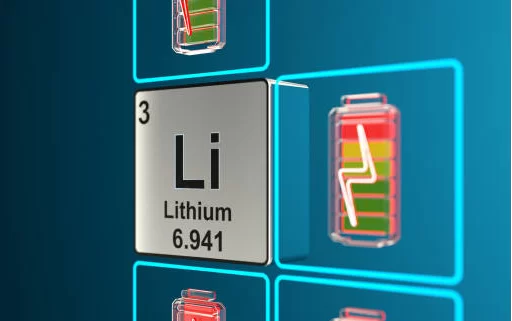Understanding the Benefits and Future of Lithium Battery Energy Storage Systems
In our ever-evolving world, the demand for efficient and reliable energy solutions is more significant than ever. One of the most promising technologies that have emerged to meet this demand is the lithium battery energy storage system. This technology is not only revolutionizing how we store energy but also playing a crucial role in the shift towards more sustainable energy solutions. In this article, we will explore what a lithium battery energy storage system is, its benefits, applications, challenges, and what the future holds for this innovative technology.

What is a Lithium Battery Energy Storage System?
A lithium battery energy storage system uses lithium-ion batteries to store electrical energy for later use. These batteries are designed to store and release energy efficiently, making them an excellent choice for various applications, from powering everyday devices to supporting large-scale energy storage projects. The core advantage of lithium batteries lies in their ability to store a large amount of energy in a relatively small and lightweight package.
Benefits of Lithium Battery Energy Storage Systems
High Energy Density
One of the standout features of a lithium battery energy storage system is its high energy density. This means that lithium batteries can store more energy in a smaller space compared to other battery technologies. For consumers, this translates to longer-lasting batteries for gadgets like smartphones and laptops, while businesses and utilities benefit from more compact and efficient energy storage solutions.
Long Lifespan
Lithium batteries are known for their impressive lifespan. They can undergo many charge and discharge cycles before their performance starts to degrade. This durability means that, over time, users get more value out of their investment as they don’t need to replace the batteries as often.
Fast Charging
Speed is another key advantage. Lithium battery energy storage systems charge quickly compared to traditional batteries. This rapid charging capability is particularly beneficial for electric vehicles (EVs) and renewable energy systems, allowing for quick turnaround times and better overall efficiency.
Low Maintenance
Compared to other types of batteries, lithium batteries require less maintenance. They don’t need regular water refills or complex maintenance procedures, which simplifies their use and reduces the overall cost of ownership.
Scalability
Lithium battery technology is highly scalable. Whether you’re looking to power a small gadget or a large-scale energy storage facility, lithium batteries can be configured to meet your needs. This flexibility makes them suitable for a wide range of applications, from residential solar power systems to industrial-scale energy storage.
Applications of Lithium Battery Energy Storage Systems
- Electric Vehicles
One of the most visible applications of lithium battery energy storage systems is in electric vehicles. EVs rely on lithium batteries to provide the range and power needed for everyday driving. The high energy density and rapid charging capabilities of lithium batteries make them ideal for this purpose, helping to drive the adoption of electric vehicles worldwide.
Renewable Energy Integration
Lithium battery ESS are essential for integrating renewable energy sources like solar and wind into the grid. These systems store excess energy generated during periods of high production and release it when production is low, ensuring a stable and reliable energy supply even when renewable sources are not generating power.
Grid Storage
Utility companies use large-scale lithium battery systems for grid energy storage. These systems help to balance supply and demand, improve grid reliability, and provide backup power during outages. By storing excess energy and dispatching it as needed, lithium batteries help to stabilize the grid and support the integration of more renewable energy.
Consumer Electronics
Lithium batteries power a wide array of consumer electronics, including smartphones, laptops, tablets, and wearable devices. Their compact size, long life, and fast charging capabilities make them the preferred choice for powering these everyday gadgets.
Backup Power Solutions
For homes and businesses, lithium battery ESS offer a reliable backup power solution. In the event of a power outage, these systems can provide essential power to keep lights, appliances, and other critical equipment running.
- Electric Vehicles
Challenges Facing Lithium Battery Energy Storage Systems
- Cost
While the cost of lithium batteries has decreased significantly over the years, it remains a concern, especially for large-scale applications. The initial investment for advanced battery systems can still be relatively high, which may be a barrier for some users and businesses.
Resource Availability
The production of lithium batteries relies on the availability of raw materials such as lithium, cobalt, and nickel. As the demand for these materials grows, there are concerns about potential shortages and the environmental impact of mining activities.
Environmental Impact
Although lithium batteries are more environmentally friendly compared to some alternatives, they are not without their environmental challenges. Issues related to the extraction and processing of raw materials, as well as the disposal of spent batteries, need to be addressed to minimize their ecological footprint.
Safety Concerns
Safety is a critical consideration for lithium batteries. While they are generally safe to use, there have been instances of battery fires and thermal runaway. Ensuring proper handling, adhering to manufacturing standards, and implementing advanced battery management systems are essential to mitigate these risks.
- Cost
The Future of Lithium Battery Energy Storage Systems
The future of lithium battery ESS is bright, with ongoing advancements aimed at enhancing performance and addressing current challenges. Here’s a look at some of the exciting developments on the horizon:
- Solid-State Batteries
Solid-state batteries represent a significant advancement in battery technology. Unlike traditional lithium-ion batteries, which use a liquid electrolyte, solid-state batteries use a solid electrolyte. This innovation promises improved safety, higher energy density, and longer cycle life, potentially transforming the energy storage landscape.
Enhanced Recycling Methods
As the use of lithium batteries grows, so does the need for effective recycling methods. Advances in recycling technologies will play a crucial role in recovering valuable materials and reducing the environmental impact associated with battery disposal.
Sustainable Production Practices
The industry is working towards more sustainable production practices to minimize the environmental impact of lithium battery manufacturing. This includes using renewable energy sources in production processes and developing alternative materials to reduce reliance on scarce resources.
Integration with Emerging Technologies
Lithium battery energy storage systems are likely to play a key role in the development of emerging technologies such as smart grids, Internet of Things (IoT) devices, and advanced energy management systems. These integrations will help optimize energy use and enhance the efficiency of various applications.
Conclusion
Lithium battery ESS are at the forefront of transforming how we store and use energy. Their high energy density, long lifespan, and fast charging capabilities make them an essential technology for a range of applications, from electric vehicles to grid energy storage. While there are challenges to address, ongoing advancements in battery technology, recycling methods, and sustainable production practices hold promise for a more efficient and eco-friendly energy future. As technology continues to evolve, lithium battery ESS will remain a critical component in our journey towards a sustainable and energy-efficient world.
